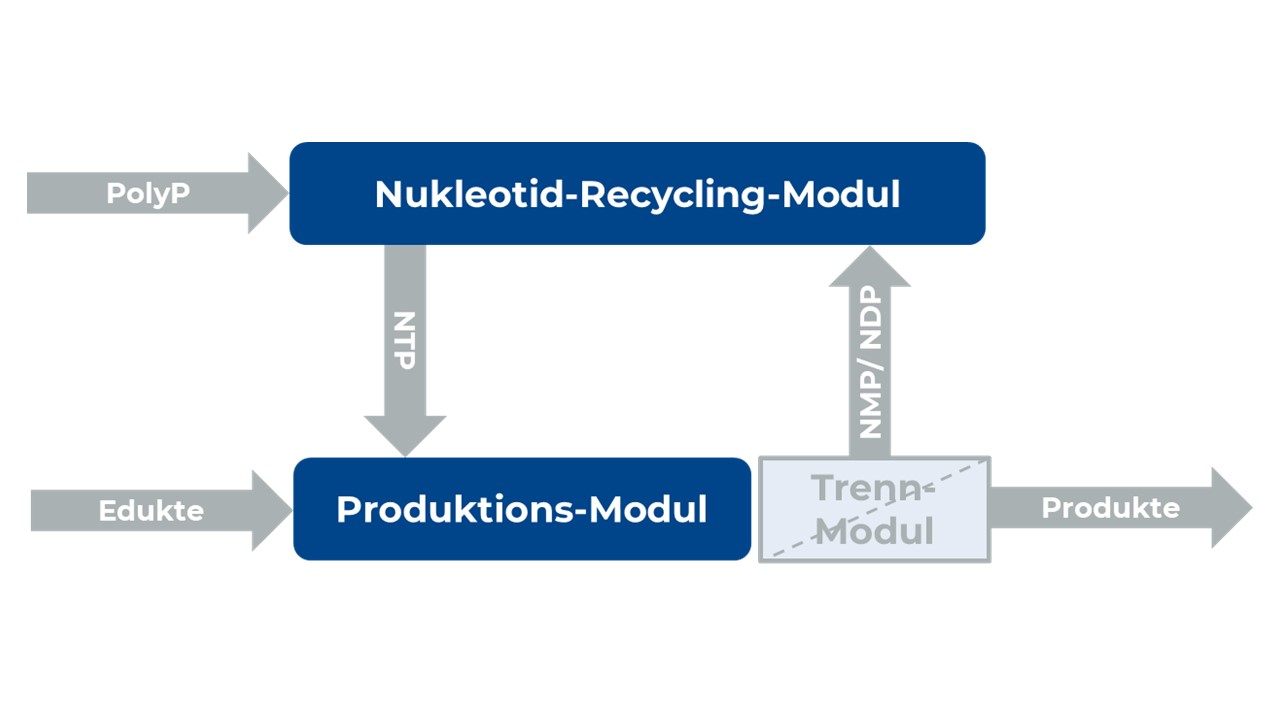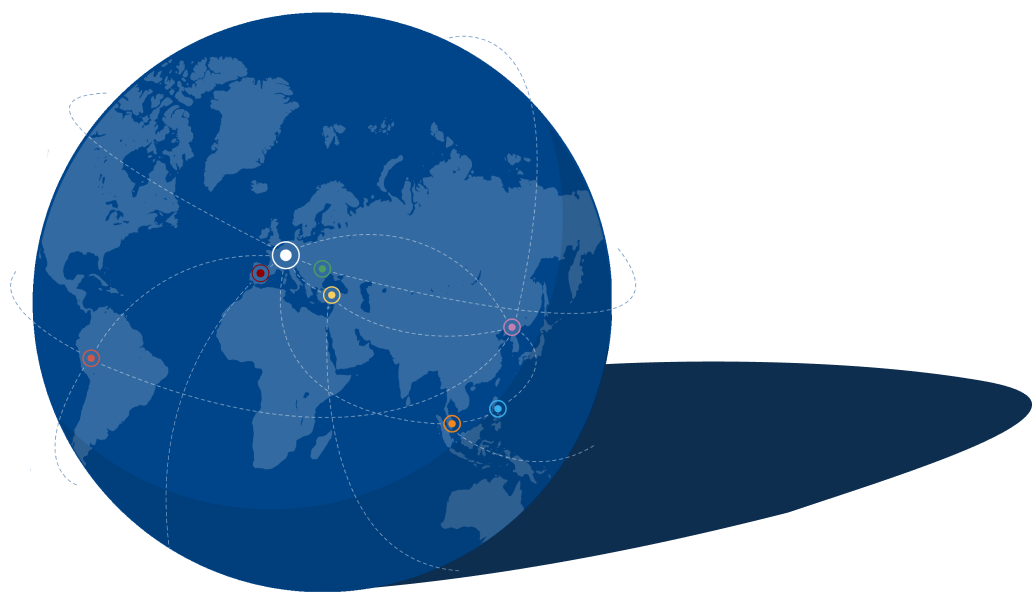


Project NukleoCycling



Project NukleoCycling – Immobilised enzyme modules for nucleotide recovery for the production of glycosylated products
- Funding reference: 031B1370
- Funding organisation: Bundesministerium für Forschung und Entwicklung (BMBF)
- Funding programme: KMU Innovativ Bioökonomie
- Funding: 310,950 €
- Funding period: 01.04.2023 – 31.03.2026
Enzymatic glycosylations, such as the production of human milk oligosaccharides, require activated nucleotide sugars for biocatalysis. These are formed by the reaction with sugars and energy-rich nucleoside triphosphates (NTPs) which are consumed equimolar for synthesis. In view of the high costs of NTPs, regeneration is therefore essential in order to achieve functioning and economical biocatalysis.
The challenge of enzymatic synthesis of glycosylated compounds therefore lies in the regeneration of the NTPs involved from their nucleotide mono- or diphosphates (NMP/NDP). These are the focus of our NucleoCycling project. The aim of our project is to develop a modular enzyme system for nucleotide recycling for the continuous regeneration of NTPs. The key enzyme of the regeneration is a polyphosphate kinase type 2 class III (PPK2 III) with an outstanding property: all central mono- and dinucleotides can be regenerated to NTP with only one single enzyme.
However, this process has not been of economic importance to date. The (free) enzyme quickly lost activity, by-products interfered with the target reactions and it was also difficult to separate products and reactants. In this project, we aim to solve the previous limitations by means of covalent immobilization, a suitable process control strategy and an innovative separation process. An enzymatic method for the universal regeneration of different nucleotides is a milestone in biocatalysis with high application potential.
